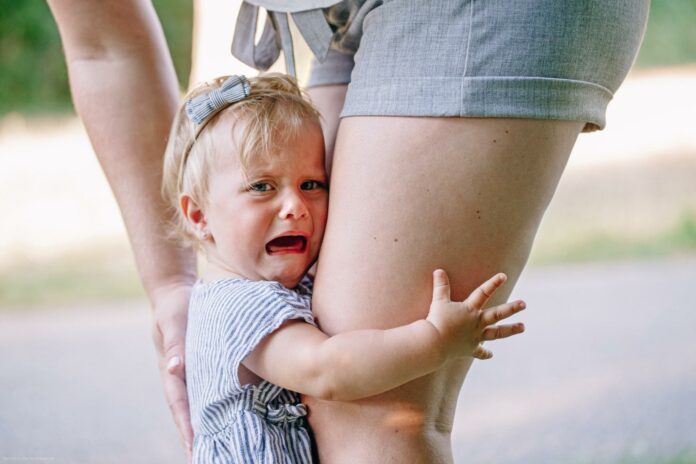Separation anxiety is common in young kids, but it can be just as difficult for the parent. Seeing your child upset can break your heart, and when it is due to your leaving, it can create guilt as well. If your child experiences separation anxiety, there are ways to help alleviate it and make the time you are apart a better experience. Whatever the reason you have to leave your child, whether for work or a night out, you don’t have to feel guilty; children need to experience time apart from a parent because it shows them you will come back, developing trust. Listed below are a few tricks to help your child so they don’t experience anxiety when you are apart and make dropoff easier on both of you.
Practice Separation
The old adage, “Practice makes perfect,” holds true when it comes to times of separation from your child. Practicing going away and coming back can help your child put the concept of their parent leaving together with the knowledge that they will return. Kids thrive on repetition, which is why learning through song is so successful. Take a few minutes every day to play pretend, where you tell your child it’s time for you to leave and walk out of the room. Come back a few moments later and explain to them that you’ll always come back to them. Making separation a game takes the fear out of it and will help them remember that you will be back before they know it when you have to leave.
Make A Quick Goodbye Routine
Drawing out your goodbye can make separation much more traumatic on a child. By excessively hugging them and assuring them repeatedly that you’ll be back, you’re giving them the opposite impression. A drawn-out goodbye feels more permanent and long-lasting and can convey a sense of permanence to your child. It’s better to keep it short and sweet and not make saying goodbye a big deal. Give your child a hug and kiss, tell them you’ll be back soon, and then leave. Don’t let them see if you struggle with going, as that will make them emotional and afraid. A quick goodbye routine will give them the chance to turn their attention elsewhere, distracting them and making the process easier.
Keep Your Promises
Trust is vital in every relationship, and the same goes for you and your child. Knowing they can believe you when you say something will help them trust you will come back when you tell them that. It’s always good practice to do what you say you’ll do, and your kids will appreciate the knowledge that they have a parent who is true to their word. Remember, you are your child’s first and more influential teacher. They will model what you do more than what you say. If they see you breaking promises, they won’t value integrity. Start early and show them the value of a promise kept.
Plan Future Activities
Discussing what you and your child will do once you pick them up is a great way to help remind them that you’ll come back for them and relieve anxiety. Focusing on future activities, you will do together helps them realize that their current situation isn’t permanent and you will come back. Young children struggle with the concept of time, so it can be hard for them to understand comments like “I’ll be back in an hour.” Instead of focusing on the time you’ll return, get them excited for what you will do when you get back. Maybe plan to get ice cream or go to the park. Tell them you’ll color with them or watch their favorite movie. Simply letting them know you have plans together will help them trust you will return and relieve their separation anxiety.
Create Caregiver Consistency
Consistency is vital for kids, and having the same caregiver can relieve the stress of being left with a stranger. If your child knows and enjoys the person you leave them with, it can help make the process easier. If you’ve found someone you trust to watch your kids, stick with them. You’ll be thankful for your peace of mind, and your kids will have more fun and not worry as much when you leave.
Separation anxiety is difficult for both parents and kids, but you don’t have to resign yourself to it lasting forever. By following a few tips like practicing separation, making a quick goodbye routine, always keeping your promises, planning future activities, and creating caregiver consistency, you can relieve your child’s anxiety and make the process easier. You and your child will be thankful you did!

